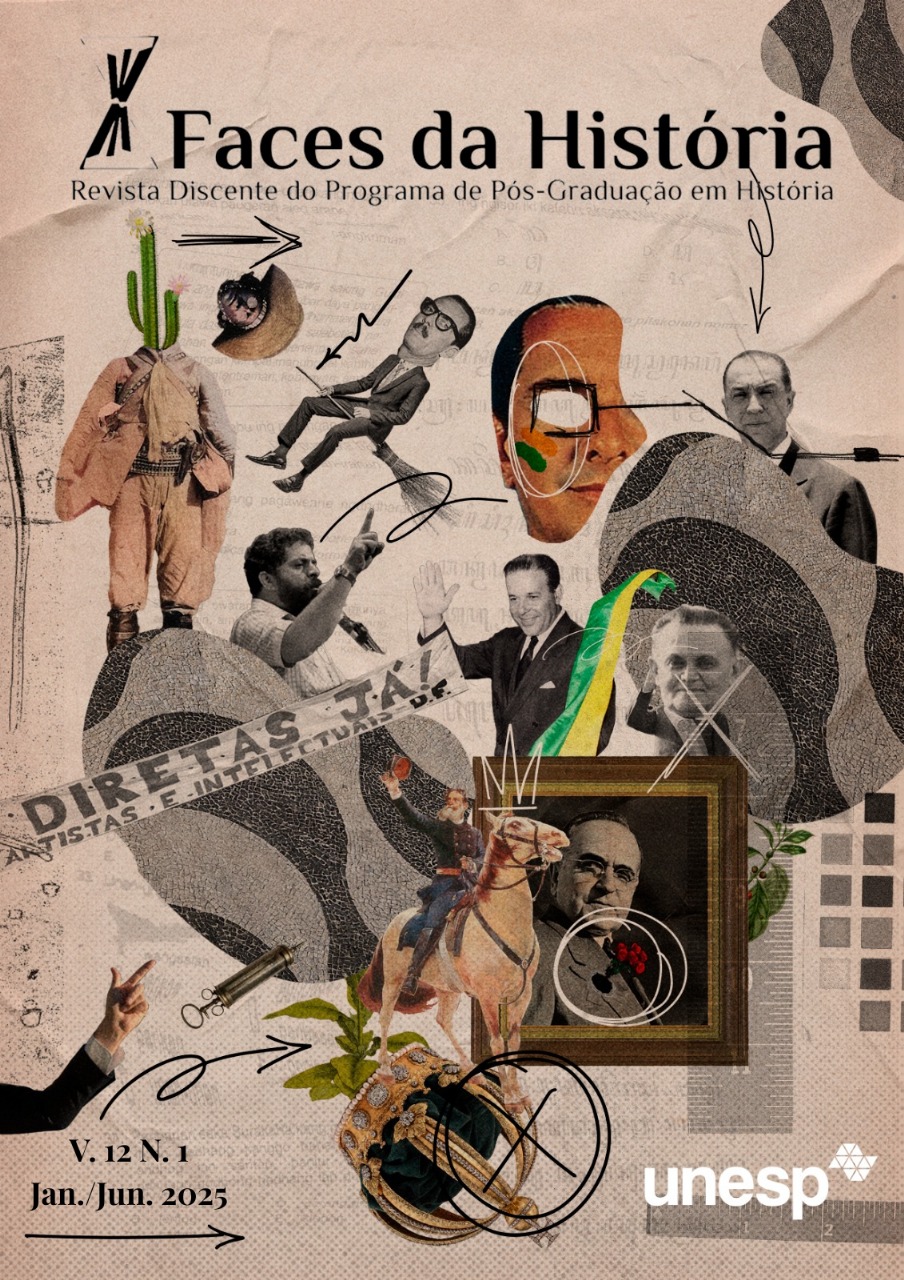Sanctified by penance
a comparative analysis of the representations of suffering from a gendered perspective in the hagiographies of Venantius Fortunatus and Baudonivia (sixth and seventh centuries)
Keywords:
hagiographies, gender, Venantius Fortunatus, BaudoniviaAbstract
This paper will discuss the results of the undergraduate research project entitled The life of Saint Radegund of Poitiers on a gender studies perspective: a comparative analysis of the hagiographies by Venantius Fortunatus and Baudonivia (sixth and seventh centuries), that has as primary documents two early medieval hagiographies, both centered on Saint Radegund of Poitiers: one written by the poet and bishop Venantius Fortunatus, and the other by the nun Baudonivia, also from Poitiers. The main research question is to investigate and discuss whether gender markings can be identified in the texts, considering the gender of each author, using a comparative methodology to examine this issue. Following a brief presentation of the theoretical and methodological framework of the research, as well as an introduction of both hagiographies, we analyze passages from the texts related to the theme of suffering to highlight potential gender differences. While the findings support the initial hypothesis, the study expands the discussion to include other factors that contribute to gender markings. These include the distinct social positions of the authors and their differing relationships with the ideals and lived realities of monastic life.
References
Fontes
FORTUNATO, Venâncio et al. Fredegarii et aliorum Chronica. Hannoverae: Impensis Bibliopolii Hahniani, 1888.
FORTUNATO, Venâncio; PALERMO, Giovanni. Vite Dei Santi Ilario e Radegonda Di Poitiers. Roma: Città Nuova, 1989.
BAUDONIVIA; SANTORELLI, Paola. La Vita Radegundis di Baudonivia. Nápoles: D’Auria
M., 1999.
Bibliografia
BLANCHETTE, Patricia A. No cross, no crown: the semiotics of suffering in early medieval female hagiography. Tese de doutorado - University of California, Santa Cruz, 2005.
BUTLER, Judith. Atos performáticos e a formação dos gêneros: um ensaio sobre fenomenologia e teoria feminista. In: DE HOLLANDA, H. B. (org.) Pensamento feminista: conceitos fundamentais. Rio de Janeiro: Bazar do Tempo, 2019, p. 213-230.
BYNUM, Caroline Walker. Fast, feast and flesh: the religious significance of food to medieval women. In: COUNIHAN, C; VAN ESTERIK, P. (org.) Food and culture. Nova Iorque: Routledge, 2013, p. 245-264.
DIEM, Albrecht. Merovingian Monasticism: voices of dissent. In: EFFROS, B; MOREIRA, I. (org.) The Oxford Handbook of The Merovingian World. Oxford: Oxford University Press, 2020, p. 320-346.
HALSALL, Guy. Gender in Merovingian Gaul. In: EFFROS, B; MOREIRA, I. (org.) The Oxford Handbook of The Merovingian World. Oxford: Oxford University Press, 2020, p. 164-185.
HALBORG, John. E; MCNAMARA, Jo Ann; WHATLEY, E. Gordon. Sainted Women of the Dark Ages. Durham: Duke University Press. 1992.
KOCKA, Jurgen. Comparison and Beyond. History and Theory, v.42, p. 39-44, 2003.
KREINER, Jamie. Merovingian Hagiography. In: EFFROS, B; MOREIRA, I. (org.) The Oxford Handbook of The Merovingian World. Oxford: Oxford University Press, 2020, p. 508-530.
MCNAMARA, Jo Ann. Introduction. In: HALBORG, J. E; MCNAMARA, J. A; WHATLEY, E. G. (org.) Sainted Women of the Dark Ages. Durham: Duke University Press. 1992, P. 1-15.
MOONEY, Catherine M. Voice, Gender and the Portrayal of Sanctity. In: MOONEY, C. M. (org.) Gendered Voices: Medieval Saints and Their Interpreters. Filadélfia: University of Pennsylvania Press, 1999, p. 1-15.
SCOTT, Joan. Gênero: uma categoria útil para análise histórica. In: DE HOLLANDA, H. B. (org.) Pensamento feminista: conceitos fundamentais. Rio de Janeiro: Bazar do Tempo, 2019, p. 213-230.
VAUCHEZ, André. O santo. In: LE GOFF, J. (org.) O homem medieval. Lisboa: Presença, 1989, p. 211-230.
WEMPLE, Suzanne. F. Women in Frankish Society: marriage and the cloister, 500 to 900. Philadelphia: University of Pennsylvania Press, 1981.
Published
How to Cite
Issue
Section
License
Copyright (c) 2025 Júlia Rovida de Oliveira Ramos

This work is licensed under a Creative Commons Attribution-NonCommercial 4.0 International License.
Autores que publicam na Revista Faces da História concordam com a cessão dos direitos autorais dos manuscritos, processo simultaneamente licenciado sob a Licença Creative Commons Attribution (CC-BY-NC), que permite o compartilhamento do trabalho com reconhecimento da autoria e publicação inicial nesta revista. Dessa forma, a Revista Faces da História pode difundir os artigos e trabalhos publicados, em formatos físicos e/ou eletrônicos, incluindo Internet.




